Donate. And support Indigenous communities’ fight against deforestation in the Amazon!
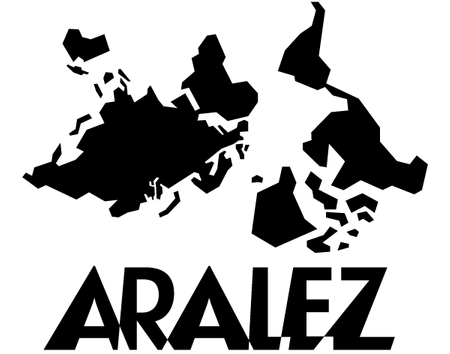
In relation to the yearly Indigenous Liberation Day foundation Aralez has started a crowdfunding campaign until 30th of October in support of Chief Dadá Borari, an Indigenous forest defender from the Brazilian Amazon. Donate and support the fight against deforestation.
Chief Dadá Borari lives in the municipality Santarém, Para state, Brazil. Known as a lawless state or the Wild West of the Amazon, this region has been for many years Brazil’s leading deforestation area. Chief Dadá is a well-known Indigenous leader in the Lower Tapajos (a forest crime hotspot) and Lower Amazon who has a mission to protect his home: the Amazon rainforest. Hired gunmen tried to take his life on various occasions, which means that he has been under police protection for more than 10 years. RTL News also wrote an extensive article on his situation here and you can also listen to his keynote speech during Indigenous Liberation Day here on YouTube.
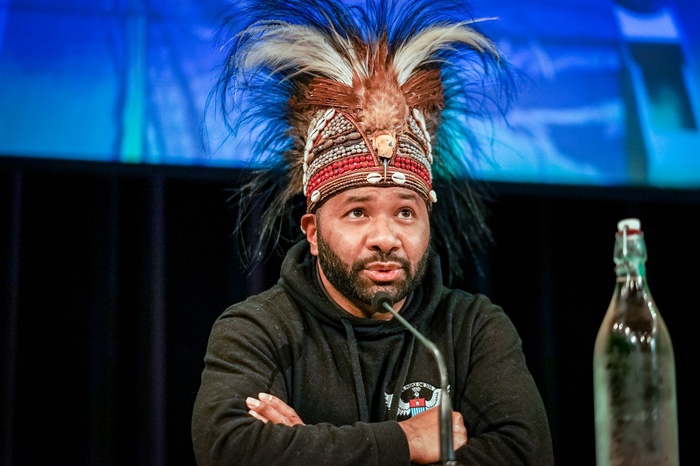
Biodiversity
Indigenous Peoples make up only 5 percent of the world’s population, yet they protect 80 percent of the biodiversity. However, when it comes to sustainable financing, not even a fraction of 1 percent of the international ngo funds related to sustainability goes to Indigenous-led frontline communities. We must understand that by protecting their land, rights and community, we are already protecting 80 percent of the biodiversity we have. This is why Indigenous frontline communities are the most important stakeholders in preventing further climate catastrophe. Because of this, Chief Dadá was one of our first keynote speakers on October 12th on Indigenous Liberation Day: a protector of one of the Amazon rainforests, one of the richest and most biodiverse places of the world.
As Chief Dadá explained in his keynote speech: “We make big movies about the animals and the trees, but that is not enough, because the big films don’t show the fight of the Indigenous guards that protect the animals, the trees and the rivers”. Indeed, we see that in many parts of the world Indigenous land defenders are intimidated or killed when faced by the hired gunmen from extractive industries.

80/20 crowdfunding
Because of the urgency to protect our forests, biodiversity and Indigenous People’s, Aralez has launched its first 80/20 campaign in relation to October 12th. The campaign is structured in a way that 80 percent of the fundraising goes directly to the frontline Maró community of Chief Dadá, and the remaining 20 percent will be invested in next year’s campaign to ensure we can continue to support another frontline community that is facing ongoing colonization. The campaign purposefully choses to make this 80/20 division as a reference to the 80 percent biodiversity that is protected by Indigenous Peoples today and to challenge the unequal power distribution in the whitewashed climate movement. The remaining 20 percent is reinvested in the yearly campaign surrounding Indigenous Liberation Day to make sure we continue to raise awareness about the fact that the climate crisis is a colonial crisis.
The crowdfund will not be invested in the narrative of ‘development’. The collected donations will be given directly to the community that Chief Dadá represents, without intermediate ngo directors, expensive offices or recruiters. The forest guardians and community are experienced and knowledgeable in the fight against deforestation, so there is no need for external management or consultations for how funds should be spent. In this way, colonial power relations fail to reproduce. The funds are given as a form of protection and repair against ongoing colonization in support of Indigenous autonomy, hoping that future crowdfunding will not be needed anymore.
Chief Dadá is also supported by Forest Forces, a ngo founded by criminologist Tim Boekhout van Solinge. They apply scientific concepts and best practices of criminology, crime science, and criminal justice studies in order to detect and prevent forest and wildlife crime. They also connect local and national justice forces. Via the Forest Forces website, you can learn more about their mission, methodology and accomplishments so far. Their donations will be used to invest in equipment to help the community to monitor where illegal deforestation activities are taking place and means to travel more efficiently through the Amazon to cover larger areas.
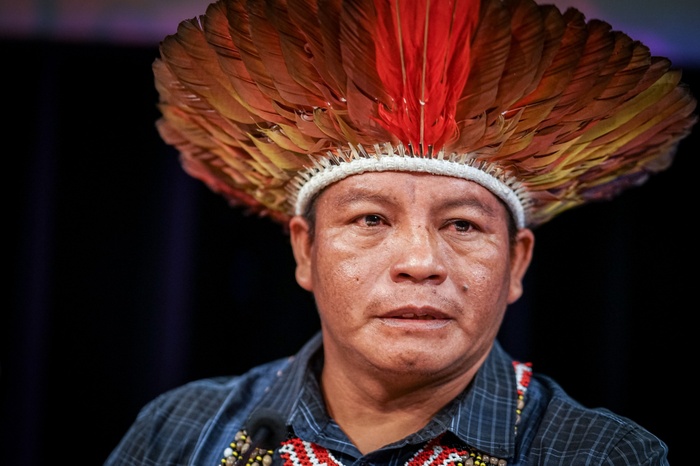
Background on urgency of solidarity with Indigenous People in Brazil
Why are we responsible as Dutch society for supporting Chief Dadá’s community? The Netherlands is a major business partner to Brazil and has not been deterred by the record of human rights’ abuses by Bolsonaro’s government. It is no surprise that in 2019, under Bolsonaro’s rule, the deforestation in the Amazon was at its highest in 11 years. Around 10 thousand square km of forest was cleared, with a further increase of 23 percent in 2020. Next to this, Brazil currently has the third highest number of Indigenous people being killed on a yearly basis according to data from Global Witness.
That Brazil is in dire need of a new president is paramount as in the 1990s, Bolsonaro, then working as a congressman, publicly stated how troops had failed to obliterate Brazil’s Indigenous communities. He explained that “the North American cavalry were the competent ones because they decimated their Indigenous people in the past and today, they don’t have this problem in their country” while complaining about the amount of land set aside for Brazil’s Indigenous people. As president, Bolsonaro declared in 2020 that “Indians are undoubtedly changing … they are increasingly becoming human beings just like us” during one of his weekly Facebook broadcasts.
Indeed, further dehumanizing Indigenous People’s in Brazil who are facing ongoing genocide. Our campaign consciously runs till October 30th, since the Brazilians elections will take place on this date, hoping the regime will change.
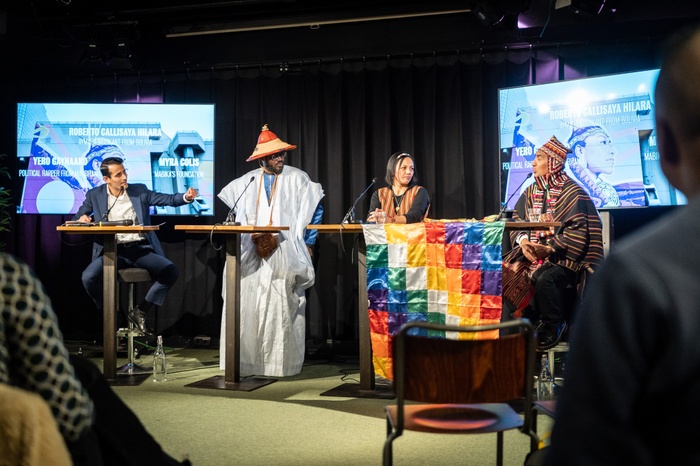
Dutch neo-colonial investors in Brazil
The Dutch government is complicit in the destruction of the Amazon. For instance, by advising and aiding the Brazilian government on infrastructure projects that extract resources from the Amazon in relation to existing trade agreements. This was documented by a report by Both ENDS called “Complicity in Destruction: how Northern consumers and financiers sustain the assault on the Brazilian Amazon and its peoples” and the article written in OneWorld. Furthermore, commercial banks and pension funds are complicit in the destruction of the environment and Indigenous rights violations. According to the Fair Finance Guide created by Both ENDS 21 banks, insurers and pension funds that are currently active in the Dutch market are also involved in soy and beef-driven deforestation in the Amazon region right now. To be specific, 6 out of 7 Dutch banks, 5 out of 9 insurance companies and 10 out of 10 Dutch pension funds have financial relationships with one or more deforestation businesses. Investing in and profiting from ongoing colonialism is nothing new for Dutch financial institutions and Dutch government when we look at their history.
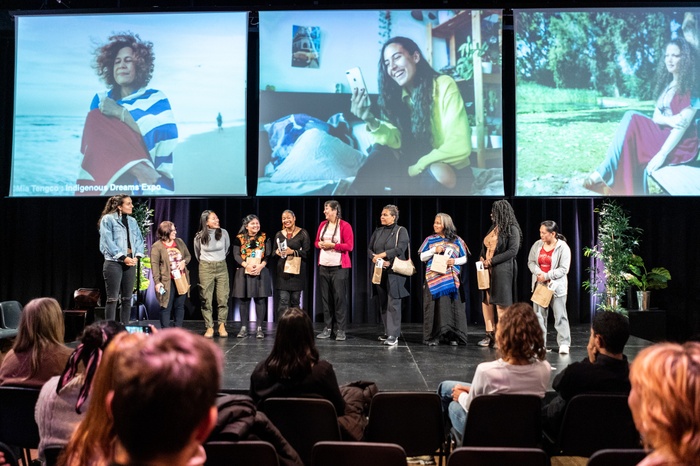
Colonial history: Dutch Brazil
Did you know that ‘Dutch Brazil’ was the most important colony of the West India Company during the so-called ‘Dutch Golden Age’? This period of Dutch colonization and occupation of Brazil also contributed to the development of the ‘free trade’ ideology in Europe, which you can read more about in “Dutch Brazil and the Making of Free Trade Ideology” by Arthur Weststeijn. It’s considered a time where the “VOC mentality” was born, as former minister president Balkenende infamously stated in the Dutch parliament.
Another important fact is that banks and insurance companies, like today, have historically been involved in providing the financial infrastructure and means for colonial businesses. An example of this is the involvement of Dutch bank ABN-AMRO in the trans-atlantic slave trade and plantation system in both east and west side of Dutch colonies. An article providing examples of this can be found in OneWorld article titled “How Dutch Banks made Profit from Slavery”.
For centuries, former colonies have been plundered, environments destroyed, and people oppressed for the sake of western markets, governments and corporations. The current extraction industry in the Amazon remains a form of “organised crime”. We therefore urge the Dutch government and its financial institutions to stop with this colonial ‘business as usual’ with a ‘free trade’ ideology, based on centuries of theft.
It may not be possible to change large systems quickly, but your direct donations in support of the frontline communities can make a difference for them tomorrow. It is important we start healing, invest in reparation, decolonization and the protection of frontline communities that face ongoing colonization.
For some of the sources in the article the LIVECAST event “Dutch Neo-colonialism in Brazil” was consulted. The 80/20 Initiative was started by Aralez in collaboration with Free West Papua campaign Netherlands in relation to the Century of Indignous Liberation.
If you want to support the 80/20 campaign, you can donate via Stichting Aralez on the IBAN-bankaccount: NL67 TRIO 0320036073 until October 30th. You can also donate through the crowdfund page of Forest Forces here, which will continue to raise money throughout the year.
Foundation Aralez
